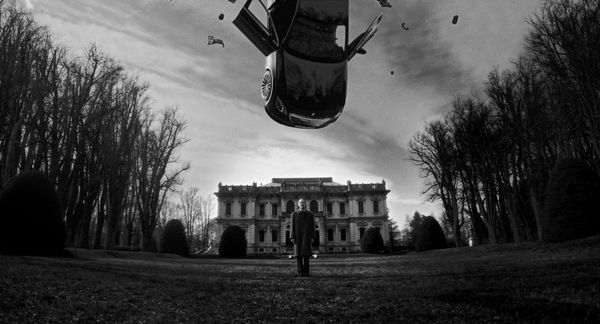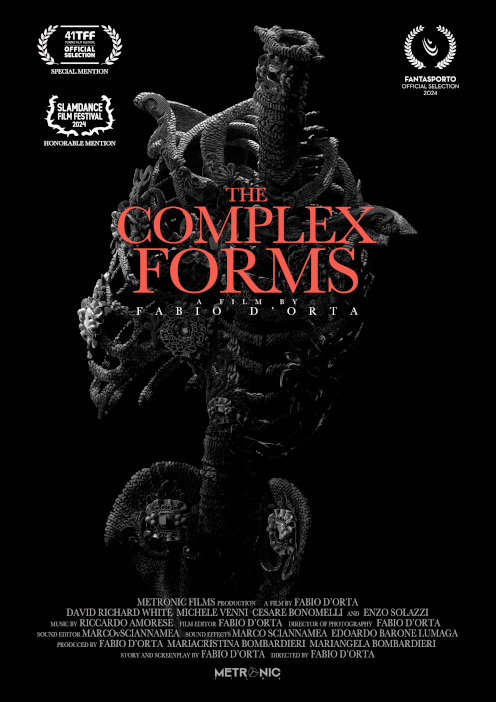Eye For Film >> Movies >> The Complex Forms (2023) Film Review
The Complex Forms
Reviewed by: Jennie Kermode

From its very first shot, Fabio D’Orta’s début feature will grab your attention. Depending on the context of your viewing, you might not realise it has started, because it looks like a car advert: glossy, artistic, clearly a product of expensive equipment and really committed work. This is the kind of cinematography that takes a lot of time and diligence, but it’s present throughout the film, D’Orta drawing on his fine arts background and experience in high end commercials to create a visual experience which is simply ravishing.
The underlying concept is pretty strong, too. In a remote country villa (a fine example of Italian neo-Classical architecture), a group of strangers has assembled. They’re all men, they all look at least 40 – pertinent details, perhaps, when one considers the demographic least like to attract police attention should individuals go missing. They have assembled here to make money. The deal, as they understand it, is that they will be renting out their bodies, allowing them to be possessed by non-human entities for an agreed number of days in exchange for cash.

“Will there be pain?” asks Christian (David White, voiced by Simone D’Andrea) of the doctor who is checking him over before the process begins. “Nothing an aspirin can’t cure,” he is told – but what he later sees will leave him uncertain about that.
Every now and again, we hear a sound as of thunder, and the treetops sway against the pale sky. Then they come: vast, absurd and yet awe-inspiring things, gleaming in black and white. They look part insect, part machine – one might think of kratid – and defy natural laws, yet there they are. D’Orta gives them a majestic aura. They are the natural masters in this place. Their power is emphasised by the ways in which they affect their environment, which are never spelled out but observed in passing. Slight, intermittent visual distortions seem to leave the men feeling dizzy. Objects move around as if gravity were shifting. At the apparent behest of the creatures, one of the men is led into a side room. He does not come out.
D’Orta observes the details of what follows in a calm, distanced way, as the men contemplate what’s going to happen to them, how much they can trust the smartly dressed, authoritative men behind the operation, and if and how they might escape. Tension and paranoia build without the need for big emotion. It’s really the quietness, the waiting, that gets under one’s skin. Most of those present are all too ready to acquiesce in the face of despair. Christian, meanwhile, grows more and more frantic, fearful for the others as well as himself. White is excellent, showing us this play of emotion and the toll it takes even when there’s nothing that can actually be done.
As The Complex Forms screened at Fantaspoa 2024, Israel and Iran engaged in a military tit-for-tat with nuclear weapons on the table, tensions simmered in the similarly armed Kashmir region, and the world continued to warm. All of us live under terrifying existential threats. Sometimes they distract us from other ways in which we are being exploited. D’Orta’s film is acutely aware of this, consciously dazzling. When we eventually learn more, it might feel like a bit of a climbdown from what has gone before, but in its own way it is every bit as sinister.
It’s the confidence of D’Orta’s technique that really elevates this film. It’s delivered with such clarity and certainty that it’s difficult not to suspend disbelief – which would seem to be part of what the filmmaker is trying to say. This is an exercise in glamour in both its modern and archaic senses. It’s also the most visually magnificent film you’re likely to see this year, and it should not be missed.
Reviewed on: 21 Apr 2024















